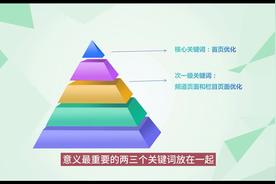The realm of website optimization is a dynamic landscape where various factors come together to dictate the visibility and ranking of websites in search engine results pages (SERPs). To achieve higher rankings, it is crucial for webmasters and digital marketers to understand and implement strategies around these key elements that impact website performance. Here are the essential factors that affect website ranking through optimization:
1、Content Quality: The adage "content is king" rings truer than ever. High-quality, original content that offers value to users is a cornerstone of SEO. Search engines favor websites with engaging, informative, and well-written content that caters to the user's query.
2、Keywords and Phrases: Proper use of relevant keywords and phrases helps search engines understand the context of your content. Strategic keyword placement in titles, headers, meta descriptions, and throughout the content can significantly improve rankings.
3、On-Page SEO: This includes optimizing various elements on your website such as title tags, meta descriptions, header tags, image alt text, and ensuring proper use of keywords. A well-structured website with clear navigation also contributes to better rankings.
4、User Experience (UX): Websites that provide a positive user experience tend to rank better. This includes fast loading times, responsive design, intuitive navigation, and accessibility features.
5、Mobile Optimization: With the rise of mobile internet usage, having a mobile-friendly website is crucial. Google's mobile-first indexing prioritizes websites that are optimized for Mobile Devices.

6、Technical SEO: This involves optimizing the technical aspects of a website, including site speed, indexing, crawlability, and structured data markup. These technicalities ensure that search engines can efficiently crawl and index your site.
7、Link Building: Acquiring high-quality backlinks from authoritative sites can significantly improve your website's authority and ranking. However, it's important to avoid low-quality or spammy links which can penalize your site.
8、Local SEO: For businesses that serve local customers, optimizing your website for local search can be beneficial. This includes local business listings, using local keywords, and earning local backlinks.
9、Social Signals: While social media activity doesn't directly improve rankings, it can generate traffic and engagement that can lead to more backlinks and social shares, indirectly boosting SEO.
10、HTTPS Security: Secure websites (those with an SSL certificate) are favored by Google as they provide a safe browsing experience for users.
11、Domain Authority: Older domains with a history of providing quality content and maintaining a good reputation can have an advantage in rankings.
12、Content Freshness: Regularly updating your website with fresh, relevant content can signal to search engines that your site is active and up-to-date, which can positively affect your rankings.
13、Voice Search Optimization: With the rise of voice assistants, optimizing for voice search by using conversational keywords and natural language can help improve visibility on voice search results.
14、Video Content: Videos can enhance User engagement and provide rich content for search engines. They can also appear in video search results and increase overall visibility.
15、Schema Markup: Using schema markup helps search engines understand the context of your content better, leading to enhanced visibility in SERPs through rich snippets.
In conclusion, website optimization is a comprehensive strategy that requires attention to various on-page and off-page elements. By focusing on these key factors, websites can improve their rankings, attract more organic traffic, and ultimately achieve greater online success. It's important to remember that SEO is not a one-time task but an ongoing process that requires constant monitoring, testing, and adaptation to the ever-changing algorithms and user behaviors.
评论列表 (0条)